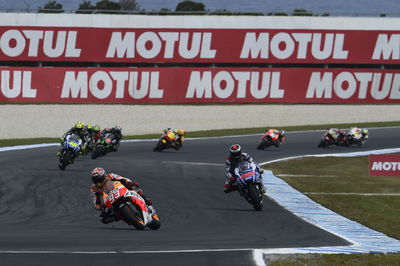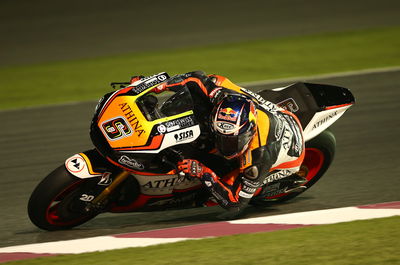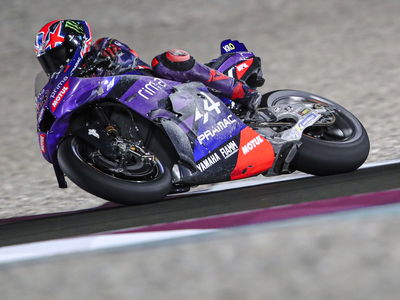MotoGP: 'Never go back to 800cc'

MotoGP, like all leading motorsports, talks a lot about 'the show'. A phrase used to describe the level of excitement and interest generated by the on-track action.
But what can be done from a technical point of view to nurture close or unpredictable competition?
"You should not do anything which does not reward the best. You should not go to the level where the best rider can lose because of chance," MotoGP technical director Corrado Cecchinelli told Crash.net. "It cannot become a lottery. Still the best rider should win, but with some sort of added pathos."
One key ingredient is the number of variables during a race. In other words, things that change as the race goes on and require an 'adapt and overcome' response by the rider.
"In my opinion as a fan you can help that by, for instance, more tyre wear," Cecchinelli said. "I would like to see the grip decreasing in a linear, predictable way - without a sudden drop off - but with a bigger [lap time] difference throughout the race. This is my personal view of how the tyres should be.
"There is usually a general relationship in tyre performance: The higher the maximum grip, the less predictable this grip becomes."
If only a few riders and machines are able to fully exploit this peak of early tyre grip, there is a greater chance of a breakaway forming in the opening laps of a race. MotoGP's 2016 change from Bridgestone to Michelin tyres would provide the ideal opportunity for a change in grip character.
"I have had some friendly discussions with Nicolas [Goubert, Michelin] just because we are friends and we exchanged opinions. The things I am telling you he knows, but I did not express them as technical director. This is just my personal opinion. I am not the one handling the project on our side."
Goubert appears to have ruled out increasing tyre degradation. However his pledge that Michelin will "do everything to have the fastest lap on the last lap of the race" would be a major change and seems to fit with ironing out the early-race grip spike.
"The other thing you can do is to reduce the amount of electronic controls, but this is definitely conflicting with safety so you have to be careful," Cecchinelli added. "But for sure these are the two big areas we should work on."
A third area is to ensure that the technical rules promote rider-friendly machines. The 'easier' a bike is to ride, the less significant technical support and team budget becomes in terms of the end result.
"The other way of having a good show because of more variables is obviously to have more riders fighting for the top positions," Cecchinelli said. "This is the perfect situation and there are a number of things that make the bikes easier to ride and cost less. Fortunately both these factors normally go together.
"Things like a rev limiter would make the engines much more rideable and cheaper. The same for simpler electronic controls. More fuel also makes bikes easier to ride and the R&D much cheaper... All of these things the manufacturers don't like!"
Cecchinelli was equally clear about what he doesn't like: "Never go back to 800cc, because that made bikes more difficult to ride and more expensive."












